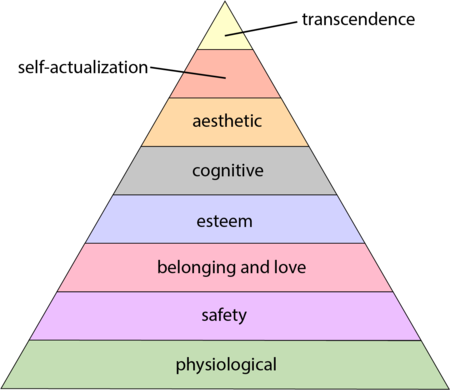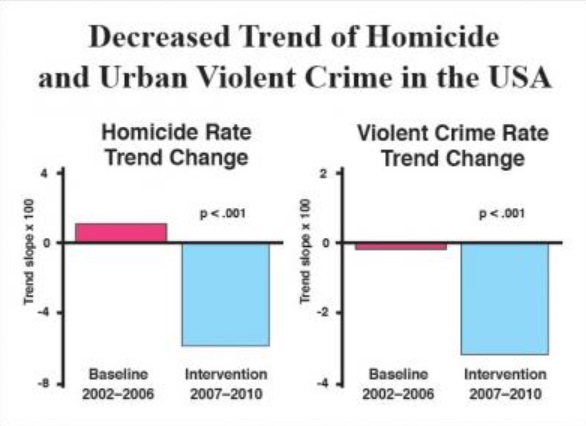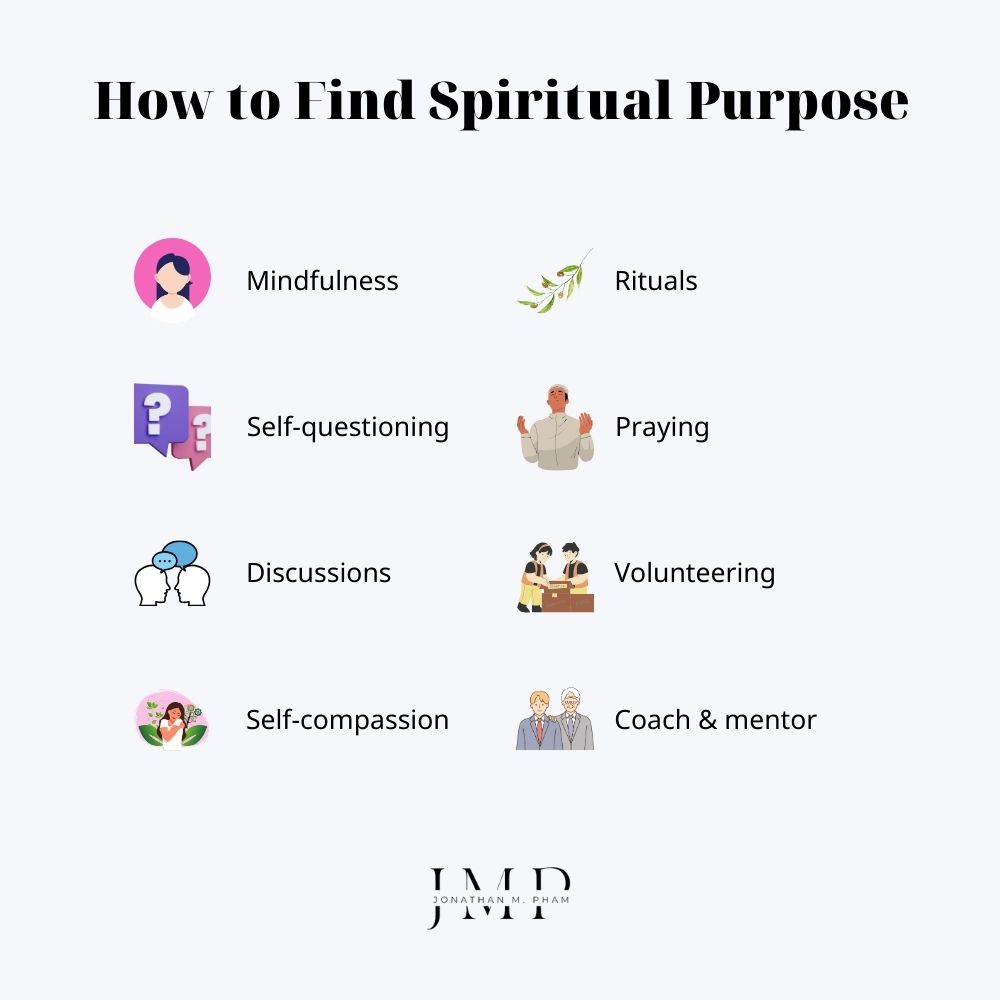Let us reflect on the connection between spirituality and life purpose, plus practical steps to align your soul’s voice with everyday life!
Who are we, truly, beyond the masks of identity and the confines of the physical world?
What cosmic purpose underpins our brief sojourn on Earth?
These are perennial questions that have haunted humanity since time immemorial. We are born into existence, live our lives, and will inevitably return to the cosmic dust from which we came.
Given this inescapable fate, what meaning can we extract from our ephemeral lives? Do we truly perish with our bodies, or does some part of us transcend death? Is our sense of self a fleeting illusion, or a timeless fragment of the universe itself?
It is in grappling with these profound questions that we begin to glimpse the concept of spiritual purpose. It is the search for meaning, connection, and transcendence that drives countless individuals on a quest for something more. Whether expressed through religion, philosophy, art, or personal introspection, this yearning for purpose is a fundamental aspect of the human experience.
Highlights
- Spiritual purpose involves a personal journey to discover one’s deeper meaning in life through connection with something greater, self-discovery, and aligning actions with core values. It is often expressed through service, personal growth, creativity, and harmony with nature.
- Reflecting on spiritual purpose is a way to massively enrich one’s life experiences; it allows us to transcend materiality, unlock hidden potential, and foster a deeper connection to ourselves and the world.
- Whenever you feel a sense of restlessness, a yearning for deeper connection, or significant life transitions arise, it’s the ideal time to start embarking on a spiritual journey.
- Spiritual purpose manifests in diverse forms, ranging from traditional religious practices to personal explorations through nature, creativity, service, and even everyday interactions. Despite differences, they are all centered around connecting with something greater than oneself and expressing oneself authentically.
- Finding one’s spiritual purpose often involves a combination of mindfulness, self-reflection, meaningful connections, compassion, and acts of service toward others (e.g. volunteering, coaching, mentoring, etc.). In this journey, one needs to learn to overcome obstacles such as materialistic tendencies, past traumas, spiritual bypassing, and the risk of nihilistic thoughts.
What is Spiritual Purpose?
Spiritual purpose is a deep-seated sense of meaning and direction in life that transcends material goals. Rather than being tied to any specific religion or belief system, it involves a personal quest for connecting with something larger than oneself (whether it’s a higher power, the universe, or a profound life mission), discovering one’s unique role in the world, and aligning one’s actions with their core values and beliefs.
Examples:
- Serving others
- Personal growth & transformation
- Spiritual practices: Meditation, yoga, prayer, mindfulness.
- Self-discovery: Understanding one’s strengths, weaknesses, and potential.
- Inner peace: Cultivating harmony and balance within oneself.
- Creative expression
- Art, music, writing: Sharing one’s talents to inspire and uplift others.
- Innovation: Creating new solutions to challenges facing humanity.
- Teaching and mentoring: Passing on knowledge and wisdom to the next generation.
- Connection with nature
- Environmental activism: Protecting the planet and its resources.
- Spending time in nature: Finding peace and inspiration in the natural world.
- Sustainable living: Living in harmony with the Earth.
- Spiritual exploration
- Studying different religions and philosophies: Expanding one’s worldview.
- Seeking spiritual teachers and mentors: Gaining guidance and wisdom.
- Attending spiritual retreats and workshops: Deepening one’s connection to the divine.
Why We Need to Think About Spiritual Purpose
The quest for life purpose is deeply spiritual in nature
The unexamined life is not worth living.
Socrates
Do you know that every month, thousands of people around the world are actively searching for answers to life’s purpose? Here, I have a screenshot of data from Google to prove this interesting fact.

Recent Google search data reveals a staggering volume of queries related to finding meaning and direction
As you can see, interest in purpose is not something confined to the realm of scholars or philosophers (nor is it limited to a particular demographic/ geographic location); in fact, it is a universal experience deep-rooted in the human psyche. From the bustling metropolis to quiet rural villages, individuals from all walks of life have been grappling with questions like, ‘Why am I here?’, ‘What am I supposed to do/ become?’, etc.
While the quest for purpose has been a perennial human inquiry, its spiritual dimensions often remain obscured, unfortunately.
The contemporary world is saturated with discussions about personal fulfillment, career success, and self-improvement. Countless books, articles, and online platforms offer strategies for achieving happiness and purpose. While these pursuits are undoubtedly valuable, they often overlook a fundamental truth:
The quest for life purpose, at its core, is a spiritual journey. It is a yearning for connection, meaning, and transcendence – elements that lie at the heart of human spirituality.
Not convinced? Well then, how about going back to the basic definition and ask ourselves:
What is spirituality?
When you hear the word “spirituality,” what comes to your mind?
Perhaps images of ancient rituals, religious doctrines, or even new-age practices. While these undoubtedly intersect with the term, they don’t encompass its entirety.
If you do a quick search on Google, you may find that there is no single definition for “spirituality”. Depending on the specific context, people may think of it in a different light. That being said, a common contemporary belief is that it refers to one’s search for “meaning and purpose in life” (which may involve a wide range of experiences and beliefs – from religious practices to personal introspection).
Based on this definition, you should see that it’s not an over-exaggeration to say that one is being very spiritual when they start asking questions about their life purpose.
Spirituality is something inherent in human nature. It is an undeniable truth – even if some so-called “scientists” or “scholars” out there may say otherwise.
When you care about the meaning of life, you are essentially catering to the spirit’s needs. And if everyone (maybe not – but I assume most of us are) is OK with discussions about “life purpose”, then they should be comfortable with the idea of “spiritual purpose”.
Key components of spirituality include a sense of connection to something larger than oneself, a quest for meaning, experiences of transcendence, inner peace, and personal growth. These elements intertwine seamlessly with the pursuit of life purpose. When individuals embark on a spiritual journey, they often discover a profound sense of meaning and direction that informs their life’s work and relationships.

Purpose of life from a spiritual perspective
There is more to life than just material wealth
You fool! This very night your life will be demanded from you. Then who will get what you have prepared for yourself?
Luke 12:20
Now, I assume that some people might object and say that purpose can be found solely in material success. While I admit that there is truth behind that claim, I also believe that such a view is very limited.
Why?
Because it forgoes one sobering truth – that life is impermanent!
In our relentless pursuit of material wealth and success, we often lose sight of the fact that we will all cease to be someday.
History is replete with examples of individuals who, despite amassing great fortunes, found themselves hollow and unfulfilled. Despite being deemed by the world as successful entrepreneurs/ celebrities/ role models, many of them ended up suffering from doubts, mental health issues, and even untimely, tragic deaths (I assume you can Google it yourself without me mentioning specific examples here).
The feverish accumulation of possessions, while offering temporary gratification, ultimately proves to be a futile endeavor. As such, instead of focusing excessively on what is to fade away soon, we should aim for something more long-lasting – the spirit.
The soul is immortal, and the body is mortal.
Plato

Spiritual purpose
A life focused solely on material gain ignores the deeper dimensions of human existence. True fulfillment comes from nurturing the spirit through acts of kindness, creativity, and a sense of connection.
(Now, I am not saying that accumulating material possessions is bad; however, I believe we should be mindful of the fact that they are NOT permanent – and that we should seek them not solely for our own goods, but rather for the greater goods)
Speaking of which, I remember once living a life consumed by the relentless pursuit of material success. My days were a blur of juggling multiple jobs, driven by the insatiable desire for more.
People applauded my ambition, but within, a growing emptiness gnawed at my soul. It was as if I were chasing a mirage, perpetually out of reach. The more I acquired, the more hollow I felt – until one day, I questioned myself:
“Is this all there is?”
And it didn’t take long for me to realize, that there had to be more to life than this endless accumulation.
With courage, I made the difficult decision to step away from the relentless grind. While financial challenges emerged as a result (and also due to past overspending), I embraced them as opportunities for growth and learning.
The journey since then has been arduous, but it has also allowed me to rediscover passions, cultivate relationships, and find a sense of peace that was previously elusive.
Where your treasure is, there your heart will be also.
Matthew 6:21

Being spiritual is what distinguishes humanity from others
The Spirit gives life; the flesh counts for nothing.
John 6:63
According to Merriam-Webster dictionary, “spiritual” means “of, relating to, consisting of, or affecting the spirit” (which is defined as “an animating or vital principle held to give life to physical organisms“).
Now, I know that people may hold different opinions on the topic of “spirit”. For as long as can be remembered, scientists and scholars have been debating on its true nature – whether it is real or just an artificial byproduct of consciousness.
That being said, I might say that it’s very subjective when it comes to deciding if something is “real” or not.
Of course it is happening inside your head, but why on earth should that mean that it is not real?
J. K. Rowling

(For those who would like to delve deeper into the topics of reality & perceptions, I highly recommend you check out this article – Why We All Need Philosophy)
Even for those who identify themselves as pure atheists/ agnostics, belief in a spirit that resides within us is still a thing. In fact, studies conducted by the Pew Research Center and New Scientist have shown that most human beings do hold faith in the existence of spirits, even if they do not affiliate themselves with any particular religious groups/ denominations.
While the nature of the spirit remains a subject of profound philosophical and scientific inquiry, you can see that it remains a popular belief in society. And if we use the Merriam-Webster dictionary’s definition as a base for analysis, then we will have to admit it’s a critical aspect of humanity.
It is the spirit’s richness and complexity – which encompasses one’s consciousness, emotions, creativity, and innate capacity for love and compassion – that sets us apart from other creatures and non-living things.
To truly live as human beings is to remind ourselves that we must never fail to care for the spirit.
Animals (well, I guess most of them) only follow their survival instincts and try to meet basic demands (eating, sleeping, sex, etc.). That is not the case for humanity; in fact, humanistic psychologists such as Abraham Maslow have pointed out other core needs that are deeply spiritual in nature.

(Source: Wikipedia)
The emergence of theories such as Darwinism & Freudianism has given rise to the increasing popularity of an oversimplified worldview – one that is purely materialistic (I’m not quite sure if that was what Darwin, Freud, and people like them intended initially, but it is what it is):
- That human beings are just “evolved animals with complex cognitive abilities”
- That things such as spirits or minds are not real, and
- That seeking pleasure is at the heart of everyone’s behaviors.
In adopting such a mindset, one has (intentionally or not) advocated for the idea that humanity is nothing superior to animals.
However, even if you identify yourself with such a way of thinking, I bet you are not going to like it when I shout at you with phrases like “You animals!”, “You monster!”, “You dogs!”, etc.
Why then?
I myself believe that it is a sign of one simple truth – that we all agree that being born human is a grace, something far better than other creatures.
In other words, we are called to exceed the normal standard and not to live like animals. We should strive to embrace aspects such as spirituality – which are not really a thing among other creatures.
We are not human beings having a spiritual experience. We are spiritual beings having a human experience.
Pierre Teilhard de Chardin
As discussed above, spirituality does not exclude anyone. You don’t need to be a saint, a certified theologian, a monk, a clergy, a scholar, etc. to think about it. Anyone can – and should – embrace their spiritual side!
Just as a candle cannot burn without fire, men cannot live without a spiritual life.
Buddha

Spiritual purpose
Spirituality is something that has fascinated humanity for long (and for good reasons)
The most beautiful experience we can have is the mysterious. It is the fundamental emotion that stands at the cradle of true art and true science.
Albert Einstein
Spirituality has been an enduring facet of the human experience, captivating minds and hearts for millennia. While contemporary society often equates success with external markers of achievement, history is replete with individuals who discovered profound meaning in seemingly ordinary lives. From Mother Teresa’s selfless service to Nelson Mandela’s unwavering pursuit of justice, their journeys and life experiences strongly suggest that the pursuit of purpose is intrinsically linked to a deeper exploration of the human spirit.
If we take a look back at history, we will see that evidence for the significance of spirituality can be found across diverse fields of inquiry:
- Aristotle’s delineation of the vegetative, animal, and rational soul hinted at a unique human capacity that transcends mere survival.
- Abraham Maslow’s concept of self-actualization, though not explicitly spiritual, underscores the human yearning for something beyond basic needs.
- Transpersonal psychology, with its exploration of mystical experiences and Eastern philosophies, delves into the spiritual dimensions of consciousness.
- Even in the realm of science, figures like Niels Bohr have acknowledged the limitations of scientific inquiry, suggesting that ultimate questions may require a spiritual or philosophical lens. As quoted by him:
It is wrong to think that the task of physics is to find out HOW NATURE IS. Physics concerns WHAT WE CAN SAY ABOUT NATURE.

In today’s fact-driven materialistic world, some may argue that science and spirituality are fundamentally incompatible, citing conflicts between religious doctrine and scientific findings. However, there is a crucial distinction between what science has NOT YET FOUND and what it has definitively proven NONEXISTENT.
While science can illuminate the physical world with remarkable precision, it may be ill-equipped to fully comprehend the nature of consciousness or the depths of human experience. As the Dalai Lama has wisely observed:
Although sentient beings, including humans, have experienced consciousness for centuries, we still do not know what consciousness actually is: its complete nature and how it functions.
Recently, the development of quantum physics has unveiled a universe that defies classical understanding, challenging our assumptions about reality. Concepts like entanglement and superposition suggest an interconnectedness that aligns with certain spiritual perspectives. While science seeks to explain these phenomena, spirituality offers a framework for understanding their deeper implications.
As you may see from the analysis above, a harmonious balance between scientific progress and inner development is essential for human flourishing. By fostering dialogue between religion and science, we can create a framework for understanding the world that encompasses both the tangible and the intangible. Such a synthesis will inspire a more compassionate, equitable, and sustainable future.
Science is not only compatible with spirituality; it is a profound source of spirituality.
Carl Sagan

Philosophical and theological perspectives on spiritual purpose
The spiritual realm is not separate from the physical one
The mind is everything. What you think you become.
Buddha
Numerous scientific studies have demonstrated the tangible benefits of a spiritual life. For instance:
- Research published in Psychology Today has shown that spiritually inclined individuals tend to exhibit qualities such as grace, optimism, compassion, and self-actualization – which not only enrich personal life but also contribute positively to interpersonal relationships and societal harmony.
- A study published on NCBI has linked spiritual practices to enhanced well-being and resilience in the face of challenges. It suggests that nurturing one’s spiritual dimension can equip one with the inner strength to navigate adversity and maintain a balanced life.
- Other research has indicated that spirituality can serve as a potent stress-reduction tool, empowering individuals to cope more effectively with the demands of daily life.
The above examples are meant to illustrate two main points:
- The quest for spiritual purpose is for one’s own good – not someone else’s benefit (though it definitely has an impact on others).
- The spiritual plane is very potent. Despite its seeming invisibility, it may turn out to be much more dynamic and influential than the physical one.
Just think about the nature of dreams. During sleep, the physical body rests, yet our consciousness embarks on extraordinary journeys within unidentified territories.
Dreams, whether blissful or terrifying, pose a potentially profound impact on our emotional and psychological state upon waking. For example, nightmares induce physical manifestations like trembling, while pleasant dreams leave us feeling refreshed and uplifted.
In other words, while our physical bodies are seemingly inactive, our spiritual selves engage in experiences with tangible consequences in the physical world.

Essentially, observation of sleep patterns offers a glimpse into the reality of a consciousness operating independently of the physical body. This separation, however temporary, underscores the idea that our spiritual essence is a distinct entity capable of profoundly influencing the body.
It is often said that a healthy spirit inhabits a healthy body, and conversely, a troubled one often manifests as physical ailments.
When we experience positive emotions, our bodies respond with increased vitality and resilience. Conversely, chronic stress and negative thought patterns play a significant role in the development of physical illnesses.
Scientific research has, remarkably, documented cases of spontaneous remission in patients with chronic illnesses (e.g. cancer) who underwent profound spiritual experiences (references: [1], [2], [3]). This suggests a direct correlation between the state of mind and the body’s ability to heal itself – that the spirit is not merely a metaphysical concept, but a tangible force that animates and influences the physical body.
Humans, with our capacity for complex thought and introspection, possess a unique ability to consciously shape our spiritual state and, consequently, our physical reality. This sets us apart from other animals, who are primarily driven by instinct and lack the same level of cognitive and spiritual development.
The interconnectedness of the spiritual and physical realms extends beyond the individual level. Specifically, when a critical mass of people focus their attention and intention on spiritual growth, the collective consciousness can bring about a transformation that manifests in the physical world (e.g. a lowered crime rate – as evidenced in this study).

(Source: EurekAlert!)
Historical events provide compelling evidence of this phenomenon. When a significant portion of humanity aligns their consciousness toward peace, harmony, and compassion, it creates a powerful ripple effect that influences global events.

As above, so below; as below, so above
By reflecting on their spiritual purpose, one may expand their horizons
I believe that the Sun has risen not only because I see it – but because by it I see everything else.
C. S. Lewis
When contemplating spiritual purpose, we cannot help but have to confront a fundamental question: does reality exist independently of our consciousness?
While it’s tempting to assume a strictly objective world, the relationship between mind and matter is far more intricate.
There is strong evidence that our consciousness has the capacity to shape our perception of reality. Dreams offer a vivid example of this interplay. During REM sleep, our brains create elaborate narratives, complete with sensory experiences and emotional responses. Though these dreams are subjective, they profoundly influence our waking thoughts and emotions.
As you may see, even in the absence of external stimuli, our minds still have the power to construct and experience reality.

Recently, psycho-neuroimmunologists have been coming up with findings about the profound impact of mental and spiritual states on physical health. Research indicates that practices such as meditation and prayer can positively influence the immune system, reduce stress, and even alleviate chronic pain.
Another example that highlights the role of consciousness in shaping reality has to do with intuition, often described as a gut feeling or inner knowing. While scientific explanations for intuition are still evolving, countless individuals have reported making decisions based on intuition that later prove correct. This suggests that our minds may access information beyond our conscious awareness, potentially influencing outcomes.
All in all, we can see from the analysis above that the line between reality and consciousness is blurred (I wonder if it ever exists at all). In fact, I dare say that the nature of reality itself is not as simple as it may seem to many of us.
We take certain truths for granted without questioning their underlying assumptions in the first place. For instance, the notion that the Earth is round and blue is widely accepted. Yet, many of us only derive this knowledge from books, television, and other secondary sources. We have not personally verified this information through direct observation. (well, I wish all of us could do that, haha)
Nevertheless, we choose to believe it without hesitation.
Similarly, our understanding of family is based on trust and emotional bonds. We assume that those who raised us are our biological parents, without concrete proof. This belief is rooted in the love and care we have received, which form a strong foundation for our sense of identity and belonging.
These examples demonstrate one thing:
Our perception of reality is shaped by a complex interplay of personal experience, cultural conditioning, and social consensus.
The boundaries between what we consider “real” and what is merely a constructed belief become blurred. Consequently, the term “reality” itself is subjective and open to interpretation.

Spiritual purpose
For centuries, the pursuit of knowledge – of finding out what is real or not – has been a cornerstone of human civilization. Recently, science has undoubtedly made remarkable strides in understanding the natural world, providing explanations for countless phenomena. However, the truth is that the more we delve into the mysteries of the universe, the more questions arise.
There are numerous occurrences that defy scientific theories. For instance, the placebo effect, where a person experiences improvement from a fake treatment, challenges our understanding of the mind-body connection. Additionally, near-death experiences, reported by countless individuals, offer glimpses into consciousness beyond the physical realm that science struggles to comprehend.
Recognizing the limitations of science, many renowned thinkers have turned to spirituality for deeper insights. Scientists like Max Planck, Werner Heisenberg, and Albert Einstein are known for having explored the philosophical implications of their work, often finding connections between science and spirituality. These pioneers acknowledged that the universe operates on principles that transcend our current understanding.
Just as an ant’s world is confined to its immediate surroundings, our human perspective is limited by our senses and cognitive abilities. We are but a tiny speck in the vast cosmos. Only by expanding our consciousness through spiritual practices may we transcend physical limitations and gain a broader perspective on life and existence.
Real knowledge is to know the extent of one’s ignorance.
Confucius
Spirituality is a personal journey without definitive right or wrong answers. Given the vastness of the universe and the brevity of human life, it’s impossible to fully comprehend the grand scheme of existence. Obsessing over rigid beliefs and doctrines will just hinder spiritual growth and confine us to narrow perspectives.
Instead of seeking absolute truths, spirituality invites us to explore the mysteries of life with an open mind and heart. There is no prescribed path or ultimate destination; the journey itself is the reward.
Spirituality is not an intellectual exercise, because intellectual answers to questions about the meaning of life and death do not satisfy anyone. The intellect helps us to be guided in the right direction, but the only answer that will satisfy us is practical experience.
Rajinder Singh
Ultimately, the choice to embrace spirituality is a personal one. There is no external pressure to believe or conform. Your beliefs are your own, shaped by your unique experiences and intuitions.
If you choose to honor your inner wisdom and trust your own path, you empower yourself to create a life aligned with your deepest values and aspirations.
If we could tap into our soul, we would see life as more than a string of meaningless events and would find a lesson and a message in all that occurs.
Rajinder Singh

Spiritual purpose
Read more: 40 Spiritual Lessons – Wisdom for Life’s Journey
Thinking about spirituality allows us to become better & live life to its fullest
The more we pursue material improvement, ignoring the contentment that comes of inner growth, the faster ethical values will disappear from our communities. Then we will all experience unhappiness in the long run, for when there is no place for justice and honesty in people’s hearts, the weak are the first to suffer. And the resentments resulting from such inequity ultimately affect everyone adversely.
Dalai Lama
The relentless pursuit of wealth (which is prevalent in today’s world) has often been linked to a host of negative emotions, including greed, envy, and dissatisfaction. These feelings, if left unchecked, may erode one’s moral compass, leading to unethical behavior and a diminished sense of well-being.
Spirituality, on the other hand, offers a counterbalance to these materialistic tendencies. By cultivating a deeper connection to something greater than oneself, one develops a stronger sense of purpose, compassion, and gratitude.
This notion is widely accepted, even among those who might not identify as spiritual. Numerous studies have shown a correlation between religious or spiritual practices and higher levels of altruism, empathy, and civic engagement. For instance, a study published in the Journal of Personality and Social Psychology found that individuals with strong religious beliefs were more likely to volunteer their time and donate to charity.

Spiritual purpose
A fundamental aspect of spirituality involves acknowledging the impermanence of life. When confronted with the stark reality of our own finitude, many of us are compelled to re-evaluate our lives and make significant changes.
Imagine being told you have only 24 hours to live. Would you continue to prioritize work over family? Would you spend time engaging in meaningless activities (e.g. drinking, staying up late to play games, gossiping about others, etc.) or pursuing frivolous goals?
For most of us, I assume the answer will be a resounding “No”.
This thought experiment underscores the importance of living a purposeful life, free from regret. By contemplating our mortality, we are more likely to identify what truly brings us joy and fulfillment.
As we age and draw closer to the end of our lives, our perspective on the world often shifts. The accumulation of experiences and the realization of our own limitations often foster a deeper appreciation for life’s preciousness.
Grandparents, in particular, typically exhibit exceptional empathy, compassion, and forgiveness. Their wisdom stems from a lifetime of learning and a profound understanding of human nature. They have witnessed the consequences of their actions and the impact of their choices on others. This accumulated knowledge enables them to approach life with greater humility and grace (e.g. being more tolerant of rebellious kids compared to younger parents).
The spiritual journey is the unlearning of fear and the acceptance of love.
Marianne Williamson

By acknowledging the vastness of the universe and our relatively small place within it, we can let go of our ego and embrace a more open-minded perspective. This humility allows us to appreciate the contributions of others and to recognize our reliance on the community.
You can’t connect the dots looking forward, you can only connect them looking backwards. So, you have to trust that the dots will somehow connect in your future.
Steve Jobs
| BENEFITS OF SPIRITUAL PURPOSE | |
| Category | Description |
| Meaning & Fulfillment |
|
| Personal Growth & Development |
|
| Connection & Contribution |
|
| Well-being & Resilience |
|
| Legacy & Impact |
|
How spirituality helps us live a better life
When to Start Thinking About Spiritual Purpose
The short answer: Anytime is a good time.
There’s no definitive age or life stage that dictates when you should embark on the journey of discovering your spiritual purpose. It’s a personal quest that can begin at any point in your life. However, certain life phases often create a fertile ground for introspection and spiritual exploration.
- Adolescence: As young people grapple with identity formation and the complexities of the world, questions about life’s deeper meaning naturally arise. This period of self-discovery is a potent catalyst for spiritual exploration.
- Young adulthood: Entering the world as independent adults, many find themselves considering their values, beliefs, and how they align with their career and life goals. This is a time to reflect on what truly matters and how to live a purposeful life.
- Midlife: Often characterized by reflection and reassessment, midlife is a powerful time for spiritual growth. As people evaluate their accomplishments and consider their future, they may desire to seek greater meaning and fulfillment.
- Times of transition: Major life events such as marriage, childbirth, or retirement can disrupt our routines and force us to re-evaluate our priorities and embark on the search for a deeper purpose.
- Challenges and suffering: Experiencing adversity is a common trigger of profound questions about life’s meaning. Turning to spirituality should provide solace, strength, and a sense of purpose during difficult times.
- Later life: As we age, it’s natural to reflect on how we’ve got here, consider our legacy, and find meaning in the journey.
There’s no right or wrong way when it comes to spirituality. It’s a personal journey that unfolds at your own pace.

While there’s no definitive checklist, certain signs may indicate that you’re ready to delve into your spiritual purpose, including:
- A sense of restlessness or dissatisfaction with your current life.
- A longing for deeper connections with yourself and others.
- A growing interest in spirituality or philosophy.
- A strong desire to make a positive impact on the world.
- Experiencing significant life changes or challenges.
- etc.
Ultimately, if you feel a genuine curiosity or a need for deeper meaning, it’s the perfect time to start your journey. And given that you’ve made it this far into the article (without giving up), it’s safe to say you’re already on the path. That you should start thinking about your spiritual purpose RIGHT NOW.
(Otherwise, you wouldn’t have searched for the topic in the first place. Otherwise, you wouldn’t have made a conscious choice to land on this page – and kept scrolling until this point)
Now, I don’t think I should push you – the path is yours after all. While there’s no need to rush, I dare say that exploring spiritual purpose early in life should offer several benefits:
- Stronger foundation: Cultivating a strong spiritual foundation can provide invaluable guidance and resilience to navigate life’s challenges.
- Aligned choices: Understanding your purpose should enable decisions that resonate with your core values and lead to a more authentic life.
- Greater fulfillment: A sense of purpose can contribute to a deeper sense of meaning, contentment, and overall well-being.
We all have a spiritual purpose, a mission, that we have been pursuing without being fully aware of it, and once we bring it completely into consciousness our lives can take off.
James Redfield

My Journey to Spiritual Purpose
Unless a kernel of wheat falls to the ground and dies, it remains only a single seed. But if it dies, it produces many seeds.
John 12:24
To demonstrate the above-mentioned points, I would like to share a glimpse into my life journey as follows.
Unlike many people who seem to have an innate inclination toward spirituality, I didn’t start thinking about it early on. Growing up in a predominantly Christian environment with limited exposure to other faiths, my understanding of spirituality was quite narrow, rigid, and often intertwined with religious dogma.
Even though people in my neighborhood attended church services regularly, most of them (or so I think) seemed to have little idea about things beyond the material world. The prevalent emphasis on material success and societal expectations – coupled with the lack of deeper conversations about life’s meaning – created a foundation that prioritized external achievements over inner growth.
Materialistic values like money, fame, and success were often equated with personal worth, and this mindset carried over into my adult life. It drove me to make choices (e.g. attending university, pursuing careers, etc.) based on financial prospects/ potential for recognition rather than personal fulfillment. Driven by the pursuit of professional advancement and financial stability, I spent little time on self-reflection and spiritual exploration activities.
It wasn’t until a series of pivotal experiences that I began to question my priorities and seek a deeper sense of purpose. (I cannot mention all of them, so I will just list down some notable milestones here)

- Exposure to diverse perspectives
Watching films like “Life of Pi” or “Silence” opened my mind to the possibility of multiple paths to spirituality. I began to question the exclusivity of my own religious beliefs and appreciate the richness of different faith traditions.
- Ethical dilemmas in the workplace
Contact with industries that prioritized profit over ethics forced me to confront the consequences of unchecked materialism. For example, I remember once working for a medical tourism business that promoted stem cell treatments. Initially drawn by the promise of cutting-edge medical advancements and the potential to help people, I quickly found myself entangled in a complex web of ethics and questionable practices.
At the time (as I found out later), the scientific community was still debating the efficacy and safety of many stem cell applications. However, the company I worked for aggressively marketed the therapy as a miracle cure for a wide range of ailments, from degenerative diseases to cosmetic enhancements. The emphasis was always on the potential, with little to no mention of the experimental nature of the treatments and the lack of concrete evidence supporting their efficacy.
I witnessed firsthand the intense pressure to prioritize sales over ethics – as well as its rippling consequences:
- Employees were driven by sales quotas, often compromising their ethical boundaries.
- Patients were often misled about the potential benefits and risks of the treatments, causing them to invest significant sums of money based on “false” hopes.
- Customers were lured by promises of “eternal youth” and vitality, leading to an obsessive focus on impermanent things like physical appearance and wealth accumulation.
- Even stakeholders were more concerned with financial returns than the potential consequences of their actions (sometimes I wonder – is it just the way Westerners do things, as pointed out in Akio Morita’s memoir? Or are things more complicated than that?)
One particular incident at that time still haunts me now. A woman diagnosed with Lupus decided to pay a hefty price to undergo experimental stem cell therapy. Instead of getting better, her condition worsened a few months after the treatment, and she was left devastated.
Witnessing the negative impact of unethical practices on people’s lives forced me to question the true meaning of success, as well as to confront the importance of morality and the emptiness of material possessions. Eventually, it ignited within me the desire for a more meaningful and purpose-driven career.
- The influence of a spiritual mentor
Due to unknown reasons (dependent origination, maybe?), I had the chance to work under the guidance of a manager (who happened to be a devout Buddhist) – and have conversations with him about spiritual topics. Through discussions with him, the emotional barriers that had been holding me back (which had formed due to various incidents) gradually thawed – prompting me to start embracing a more open and compassionate worldview.
Through these experiences, I began to recognize the importance of morality, compassion, and inner peace. My journey toward spiritual purpose is ongoing, but it has undoubtedly enriched my life and given me a deeper sense of meaning.
How about yours?
Awakening is not changing who you are, but discarding who you are not.
Deepak Chopra

Spiritual Purpose May Take Many Forms
As previously discussed, spiritual purpose is a deeply personal journey that doesn’t necessarily require adherence to a specific religion or practice. At its core, it’s about connecting with something larger than oneself, a sense of belonging to a greater whole. This connection can manifest in countless ways, from the overtly spiritual to the seemingly secular.
The paths to spiritual fulfillment are as varied as the individuals who embark on them. Some involve structured practices and beliefs, while others are more fluid and personal.
Traditional practices
- Religion: Organized religions provide frameworks for spiritual growth through rituals, doctrines, and community. They often involve practices such as prayer, meditation, fasting, and service.
- Philosophy: Philosophical inquiry can be a profound spiritual journey. Systems like Stoicism and Confucianism offer ethical and moral frameworks for understanding the world and one’s place within it.
Less conventional expressions
- Meditation and mindfulness: These practices focus on cultivating present-moment awareness and inner peace, which help deepen one’s spiritual connection.
- Nature connection: Spending time in nature has been proven to potentially foster a sense of awe and wonder, leading to a deeper appreciation for the interconnectedness of all things.
- Creative expression: Art, music, writing, and other forms of creative output are powerful channels for spiritual exploration and self-discovery.
- Service and compassion: Acts of kindness towards others often cultivate a sense of purpose and connection.
Spiritual dimensions of everyday life
While activities like teaching, coaching, mentoring, and volunteering may seem primarily secular, they often involve a deep sense of purpose and connection to others. These endeavors can be profoundly spiritual as they contribute to the growth and well-being of others, creating a ripple effect of positive change.
Similarly, those such as self-questioning, self-reflection, and philosophical discussions typically lead to profound insights about life, existence, and one’s place in the world.
Read more: 37 Spiritual Activities to Nurture the Soul

The Unity of Spiritual Paths
Respect the Divine and love people. (敬天愛人)
Kazuo Inamori
I would like to emphasize one of my core beliefs: the path to spiritual fulfillment is unique for every individual. There’s no one-size-fits-all approach – what resonates with one person may not resonate with another. The beauty lies in the diversity of these paths, each offering valuable insights and tools for personal growth.
To me, all genuine spiritual paths ultimately lead to the same destination: a deeper connection to a greater whole (which can be referred to as the “Divine”). Which way one decides to tread is less important than the intention behind it – we are all pilgrims on the journey of self-discovery. Regardless of whether you follow a structured religion, delve into philosophy, or find fulfillment in nature or service, the goal is to cultivate inner peace, compassion, and a sense of purpose.
My spiritual mentor once remarked that every religion contains certain elements of truth – otherwise, they wouldn’t have endured through the ages. It’s as if there’s a core essence of spirituality that permeates all faiths, like a universal language spoken in different dialects.
Perhaps, as some believe, there is a single, overarching “force” or consciousness guiding humanity. If this is true, then every prophet and spiritual leader could be seen as a messenger of this higher power, each offering unique insights and teachings.
From Christ, I learn about love, compassion, and forgiveness.
On the other hand, reflecting on the Buddha’s teachings allows me to gain insights into suffering, mindfulness, and the path to enlightenment.
By embracing the wisdom of multiple traditions, we can broaden our own spiritual horizons and deepen our connection to the divine.

What is My Spiritual Purpose?
While this is a question I can’t answer for you, it’s crucial to understand that the power to unveil your calling lies entirely within you.
Think of it like a hidden treasure map. While others might offer guidance, point you toward landmarks, or even share tales of their own discoveries, ultimately, you’re the one who wields the shovel and navigates the path.
It’s your courage and perseverance that will lead you to the buried treasure, the unique calling that ignites your spirit and fills your life with profound meaning.
Speaking of which, I would like to mention author Mark Manson’s perspective on finding one’s passion. Specifically, he argues that dwelling on “finding” a passion is a waste of time. Quite often, it’s already right there, bubbling beneath the surface.
That being said, things like fear, societal expectations, and self-doubt often act like thick fog, obscuring our view and keeping us from taking action. We get tangled in the web of “what ifs” and “shoulds,” neglecting the quiet whispers of our souls.
In other words, the real challenge lies in overcoming these internal roadblocks and daring to pursue what truly ignites our souls. It’s about taking a leap of faith – and trusting that help will be given along the way.
Tell your heart that the fear of suffering is worse than the suffering itself. And that no heart has ever suffered when it goes in search of its dreams.
Paulo Coelho
So, let us go back to the question: What does your spiritual purpose look like?
While I can’t prescribe a specific path for you, I believe your purpose is inherently tied to authenticity. It’s about embracing your unique essence, honoring your passions, and living a life that resonates deeply with your soul.
Think about those moments when you’ve been utterly captivated, so engrossed in an activity that time seemed to stand still.
Perhaps you were lost in a creative project, immersed in nature, or engaged in a meaningful conversation. These are reliable glimpses into the passions that fuel your spirit.
For me, teaching and sharing ideas is one of my driving forces. I find immense fulfillment in facilitating and illuminating the minds of others (as I am doing right now – working on this article and taking care of this blog), as well as in fostering meaningful connections. To me, it’s like being a mirror reflecting the light of knowledge and inspiration.
While this path hasn’t led to financial stability (at least not yet), it’s a choice I wholeheartedly embrace without regret.
While what I’m doing right now may not lead to traditional measures of success (e.g. wealth), it has (up to now) brought me a sense of peace and purpose that far outweighs material possessions.
Follow your passion. It will lead you to purpose.
Oprah Winfrey

Now, it’s up to you to decide the path for yourself. Just remember, your spiritual purpose is not about achieving external validation or societal benchmarks. Rather, it’s about aligning your actions with your core values and finding deep satisfaction in the process.
It’s about honoring your inner voice, embracing your individuality, and living a life that leaves a positive impact on the world.
Why should I care anyway – some may ask?
Because, Memento Mori. Remember that you must die someday!
The purpose of life is to discover your gift. The meaning of life is to give it away.
David Viscott
“So Panda, WHO ARE YOU?”
“I AM PO!“
Read more: Ikigai – The Blueprint for a Purposeful & Fulfilling Life
What Makes Up One’s Spiritual Purpose?
One cannot individuate as long as one is playing a role to oneself; the convictions one has about oneself are the most subtle form of persona and the most subtle obstacle against any true individuation.
Carl Jung
If you are ready and determined to tread the path, let us go over some of the core components one needs to evaluate when it comes to finding their spiritual purpose:
- Values: The guiding principles shaping actions and decisions (e.g. honesty, compassion, integrity, and sustainability). They often align with one’s beliefs (within the confines of religion or not) and serve as a compass for your life.
- Relationships: Connections with others, whether family, friends, or the whole community.
- Meaning and purpose: Seeking a deeper understanding of your existence, your role/ mission in the world, and what truly matters to you. For this, one needs to spend time pondering their core beliefs, passions, and aspirations. Some might find meaning in helping others overcome adversity, contributing to environmental conservation, or exploring the mysteries of the universe.
- Connection to something greater: This can be a higher power, nature, society, or a sense of universal interconnectedness.
- Contribution: Giving back to others and making a positive impact on the world.
- Life experiences: Overcoming a significant challenge, experiencing loss, or falling in love are all transformative life experiences that can significantly shape one’s spiritual path.
Read more: Are You Living or Just Existing? Let’s Find Out!

Pillars of spirituality
How Do I Find My Spiritual Purpose in Life?
The way is not in the sky. The way is in the heart.
Buddha
Intuition
Intuition refers to the innate ability to access wisdom and knowledge from within oneself, often beyond the realm of conscious thought. It’s that subtle feeling or knowing that guides us in decision-making and life choices. While it’s still something debatable within the scientific community, recently there has been growing evidence of its existence.
Many believe intuition is a channel for connecting with a higher power or universal intelligence, providing insights and direction on one’s spiritual path. It is often described as a bridge between the conscious mind and the soul. When we align with our “higher self”, we often experience synchronicity, or meaningful coincidences, which can be seen as confirmations that we are on the right path.
Example: Imagine someone feeling a strong pull to volunteer at a local animal shelter. While their conscious mind might question the time commitment, their intuition tells them it’s the right path. As they begin volunteering, they discover a deep connection with the animals and a sense of fulfillment. They start to realize this work aligns with their core values of compassion and service, leading them to explore a career in animal welfare.
I believe in intuitions and inspirations…I sometimes FEEL that I am right. I do not KNOW that I am.
Albert Einstein
While scientific proof may be limited, I dare say that personal experience should be a powerful validation of inner guidance’s role in spiritual discovery.
Self-knowledge
Self-knowledge involves a deep understanding of one’s personality, values, strengths, weaknesses, passions, desires, and life experiences. It’s about gaining insights into one’s own motivations and patterns of behavior – so as to break free from societal expectations/ self-imposed limitations and align one’s actions with their authentic self.
For instance, let’s say you find out that your core values include compassion, sustainability, and community. However, your current job in a highly competitive corporation conflicts with these beliefs. Realizing this should prompt you to consider seeking a different career – perhaps in social work or environmental activism.
A crucial component of self-knowledge is relentless curiosity. Specifically, one should demonstrate a thirst for knowledge and new experiences, coupled with the courage to step outside of their comfort zone. By embracing exploration and challenging preconceived notions, we may uncover hidden aspects of ourselves and expand our potential.

Spiritual purpose
Open-mindedness
The mind is like a parachute. It works best when it’s open.
Dalai Lama
Open-mindedness is not merely a passive acceptance of different viewpoints; it is an active engagement with diverse perspectives. Just as a seed requires open soil to germinate, our spirit thrives when nurtured by the openness to new possibilities. In adopting such a mindset, we invite a wealth of experiences and knowledge to enrich our journey.
For instance, my spiritual mentor, a Buddhist, firmly believes in the concept of karma and its influence on present-day experiences. Accordingly, all miseries, losses, and sufferings are the results of one’s doings in their previous lives.
While my Christian background might lead me to question certain aspects of this belief (e.g. reincarnation), I wholeheartedly agree with the underlying principle of focusing on present actions rather than dwelling on the past (in other words, we should focus on the current causes – so as to influence future effects – rather than being obsessed with the current effects, which stem from past causes and therefore cannot be changed).
This shared understanding, born from open-mindedness, has enriched our spiritual dialogue and deepened my appreciation for the universal truths that transcend religious boundaries.
(As a side note, I think it’s worth mentioning the fact that I cannot disprove the existence of reincarnation – nor can I prove the reality of an afterlife, salvation, or other doctrines accepted in my spiritual tradition. After all, we are dealing with things beyond the material world, so why bother arguing over differences? Why don’t we try to find shared values instead? That is my stance on interfaith dialogues)
On the other hand, being open to new possibilities also cultivates empathy and compassion towards others, which are essential qualities for spiritual maturity.
Do not treat prophecies with contempt. Put everything to the test. Hold on to what is good.
1 Thessalonians 5:20-21

Faith
It is in moments of vulnerability and struggle that we often find the most profound spiritual growth.
Life’s complexities are what cause us to occasionally question our own paths – or, I might say, our convictions. That is when faith comes in – an anchor that steadies us during life’s storms, allowing us to delve deeper into our souls and uncover our true purpose.
By confronting our fears and limitations with faith and resilience, we open ourselves to a greater understanding of our place in the world. Like a phoenix rising from the ashes, we can emerge from adversity with a renewed sense of purpose.
Consider the experience of a person facing a terminal illness. In the face of such immense adversity, their faith might be their sole source of comfort and hope. As they navigate the challenges of their condition, they may develop a profound sense of gratitude, compassion, and empathy. Their resilience, forged in the crucible of suffering, allows them to find meaning in their experience and to inspire others. In this way, their spiritual purpose becomes evident – to share their journey, offer hope, and create a positive impact on the world.
On a long journey of human life, faith is the best of companions; it is the best refreshment on the journey; and it is the greatest property.
Buddha

Connection with others
No man is an island, entire of itself; every man is a piece of the continent, a part of the main.
John Donne
The journey towards spiritual fulfillment is often seen as a solitary pursuit. However, the reality is that human connection plays an indispensable role in this exploration.
A strong sense of community provides a nurturing environment where individuals may share their spiritual quests, doubts, and triumphs. This shared experience fosters a sense of belonging and purpose, reminding us that we are not alone on our path.
Beyond community, building relationships grounded in empathy, compassion, and understanding is essential – as they broaden our awareness of the human experience and how we are all connected. As we empathize with the joys and sorrows of others, we develop a deeper sense of compassion and a desire to contribute positively to the world.
On the other hand, engaging in service to others is a powerful catalyst for spiritual growth. By shifting focus from personal concerns to the needs of others, not only may one discover a profound sense of fulfillment and purpose – but they may also have a chance to glimpse into their hidden strengths and capacities, leading to a deeper understanding of their role in the world.
Example: A teacher working with underprivileged children might experience a profound sense of joy and purpose as they witness the transformative power of education.
Two are better than one, because they have a good return for their labor: If either of them falls down, one can help the other up.
Ecclesiastes 4:9

Best Practices for Finding Your Spiritual Purpose
Mindfulness exercises
Mindfulness practices allow us to tune into our inner world and connect with our deeper selves. When practiced frequently enough, they have been found to play a role in enhancing one’s intuition and connecting with one’s spiritual purpose.
Core exercises:
- Meditation: Focusing attention on the present moment, often through breath observation or body scanning. Regular meditation can reduce stress, improve concentration, and foster a deeper connection with oneself.
- Self-reflection: Turning inward to examine thoughts, feelings, and experiences is crucial for self-awareness.
- Journaling: Writing down thoughts and emotions is a great way to gain clarity and perspective. It serves as a personal record of one’s spiritual journey – based on which one may cultivate a positive mindset and foster a deeper appreciation for life’s blessings.
Additional ideas:
- Mindful walking: Paying attention to sensations during walking – so as to become grounded in the present moment.
- Mindful eating: Savoring each bite and appreciating the food you have.
- Nature mindfulness: Immersing oneself in nature fosters a sense of connection with the natural world and a deeper understanding of one’s place within it.
Read more: 45 Daily Mindfulness Questions

Self-questioning
A powerful tool for spiritual exploration, self-questioning involves careful introspection of various aspects of life, including:
- Fundamental beliefs: Examine core ideologies about God, the universe, and one’s place within it.
Example: “What is my understanding of divinity? Is it a personal God, an impersonal force, or something else entirely? What do I believe in? How do my beliefs shape my worldview and actions? Why does suffering exist in the first place?”
When we dare question long-held dogmas, we open ourselves to new perspectives and insights. For instance, challenging the belief in a controlling deity may result in a deeper appreciation of free will and personal responsibility. Or, the question of whether religious people should be involved in politics invites a critical examination of the interplay between faith and civic engagement.
- Meaning and purpose: Explore the nature of existence, suffering, and the search for meaning.
Example: “How do I define happiness and fulfillment? What role does suffering play in my life journey?”
- Ethics and morality: Question personal values and ethical frameworks.
Example: “How do I reconcile my beliefs with the world’s injustices? What is my role in creating a better world?”
- Spiritual practices: Evaluate the effectiveness of current spiritual practices and explore new possibilities.
Example: “Is my prayer practice meaningful and fulfilling? Are there other spiritual paths I might explore?”
At the end of the day, the goal of self-questioning (and spirituality in general) is not to find definitive answers – but to stimulate deeper reflection and personal growth. By engaging in this process, we may gain valuable insights into our spiritual purpose and make choices in alignment with our core values. Therefore, don’t be afraid to pose open-ended questions that deal with topics that may seem out of one’s reach (e.g. war, social equality, etc.).

Additional tips for effective self-questioning:
- Reconnecting with yourself
While engaging in self-questioning, try to recall moments of heightened awareness or connection (often described as “enchanted states”).
Perhaps you’ve felt a profound sense of peace while in nature, a deep connection during prayer, or a state of flow while engaged in a creative pursuit (for example, I find myself completely losing track of time while writing this article and taking care of this blog).
These experiences should offer valuable clues about your spiritual inclinations and passions. By reflecting on them, you can gain insights into what truly energizes and inspires you.
- The power of vocalization/ visualization
Psychology suggests that verbalizing thoughts can strengthen beliefs and intentions, a phenomenon known as the “affirmation effect.” The process of visualizing your reflections (either by speaking out loud or writing them down) often enhances self-awareness and leads to a clearer understanding of the inner world.
Read more: 200 Self-reflection Questions by Topic – Toolkit for Life Pilgrims
Meaningful discussions
Discussions serve as a potent catalyst for spiritual growth – they provide a great way to broaden perspectives, challenge assumptions, and foster a deeper understanding of one’s life path.
The first step to tap into the power of dialogue is to find your tribe. Identify a topic or issue that genuinely interests and inspires you (which could be anything from environmentalism to social justice or personal growth). Seek out those who share similar interests or values. Consider joining spiritual groups, attending workshops, or participating in online forums to connect with like-minded people.
Do your best to engage in conversations with people from different backgrounds, cultures, and belief systems. Practice active listening, and try to come up with open-ended questions that encourage deeper exploration and sharing. For example, instead of asking “Do you believe in God?”, ask “What is your understanding of spirituality?”

Spiritual purpose
Sample discussion:
- Topic: The role of suffering in spiritual growth.
- Discussion: Participants share personal experiences of suffering and how they have found meaning or purpose within those challenges. The group explores different philosophical and religious perspectives on suffering, as well as practical coping strategies.
Read more: 50 Spiritual Questions for Awakening the Soul
Self-compassion
Treat yourself with warmth and understanding, rather than harsh self-criticism. For instance, instead of berating yourself for a mistake, offer yourself encouragement and support. After all, challenges and imperfections are shared human experiences – everyone makes mistakes and experiences setbacks from time to time.
Tips on how to cultivate self-compassion:
- Practice self-care & time management: Spend time for activities that nourish your body and mind, such as exercise, healthy eating, and relaxation.
- Mindful self-talk: Replace negative self-talk with positive affirmations and supportive statements.
- Gratitude practice: Focusing on what you appreciate in life – so as to shift perspectives and foster a sense of contentment.
- Compassionate listening: Treat yourself with the same empathy and understanding you would offer a friend.
- Finding equilibrium: Strive for a balance between work, relationships, hobbies, and personal commitments. Learn to say no to excessive demands to protect your well-being.
Read more: Work-life Balance – 14 Tips to Unplug & Recharge
Rituals
Rituals and practices provide a structured way to connect with the Divine/ essence of the world. They can be personal, communal, or a combination of both – examples include:
- Yoga: Yoga practices combine physical movement, breath control, and mindfulness to connect body, mind, and spirit.
- Religious or spiritual services: Participating in communal worship or ceremonies often rewards a sense of belonging and spiritual community.
- Fasting or dietary restrictions: These practices are amazing for the promotion of self-discipline, focus, and spiritual reflection.
- Creative expression: Engaging in art, music, or writing is a very potent form of spiritual expression and exploration.
Read more: 14 Incredible Benefits of Classical Music
Praying
Prayer is a form of communication with a higher power, inner wisdom, or a sense of universal consciousness. It can involve speaking, listening, silent meditation, or a combination of these. Depending on the context, one may go for a different form of prayer:
- Supplication: Asking for specific needs, desires, or help (e.g. for healing, guidance, or protection).
- Thanksgiving: Expressing gratitude for blessings and experiences (e.g. loved ones, health, or opportunities).
- Praise: Acknowledging the divine’s power, goodness, and love by singing hymns, reciting sacred texts, or offering affirmations.
- Confession: Admitting mistakes, seeking forgiveness, and turning towards a higher power.
- Meditation: Repeating a mantra or focusing on the breath to stay in the present.
The act of praying is a deeply personal experience; you are free to do it in whatever way that works for you. Additionally, it is not just about speaking – but also about listening for guidance, inspiration, or inner peace.

Spiritual purpose
Tips for effective praying:
- Finding a quiet space: Create a peaceful environment to minimize distractions.
- Open your heart: Approach the exercise with openness and gratitude.
- Embrace vulnerability: Be open and honest about your thoughts, feelings, and desires.
- Listen actively: Pay attention to inner thoughts, feelings, and intuitions.
- Silence: Allow for periods of silence to deepen your connection and receive insights.
- Letting go: Surrender your worries and concerns to a higher power, trusting in divine guidance.
The goal of prayer is NOT to manipulate external circumstances – but to cultivate a deeper connection with the Divine.
Volunteering for others
Volunteering involves dedicating time and energy to help others or the community without expecting anything in return. As such, it’s a powerful way to connect with others, make a difference, and attain personal fulfillment.
When it comes to finding your niche, start with identifying your passions – causes or issues you care deeply about. Look for roles that align with your abilities/ interests, and explore opportunities from organizations in your local community. Then, begin with a manageable commitment and aim to gradually increase your involvement over time.
Examples of volunteer opportunities:
- Tutoring: Helping students with their studies is often an incredibly rewarding experience.
- Animal shelters: Caring for animals and assisting with adoption processes.
- Food banks: Distributing food to those in need and helping with food drives.
- Environmental organizations: Participating in clean-up efforts or conservation projects.
- Hospitals or nursing homes: Providing companionship and support to patients.
Coaching & mentorship
A mentor, coach, or accountability partner is an invaluable asset in navigating life’s challenges and discovering one’s spiritual purpose. They offer wisdom, emotional support, and accountability, helping you to clarify your goals, overcome obstacles, and reach your full potential.
How to find one:
- Identify your needs: Determine what kind of support you’re seeking, whether it’s spiritual guidance, career advice, or personal development.
- Leverage your network: Reach out to friends, family, or colleagues for recommendations.
- Online platforms: Explore online platforms that connect mentors with mentees.
- Volunteer or intern: Consider volunteering for a cause you care about to connect with potential mentors.
I don’t know what your destiny will be, but one thing I know: the only ones among you who will be really happy are those who have sought and found how to serve others.
Albert Schweitzer

Challenges in Finding Spiritual Purpose
Balancing materialism and spirituality
One of the most significant hurdles on the path to spiritual purpose is the pervasive influence of materialism. Contemporary society often equates success with wealth, possessions, and status – thereby overshadowing the pursuit of inner growth and meaning. As a result, many find themselves caught in a relentless cycle of acquiring material goods, believing that these possessions will bring lasting happiness and fulfillment.
The constant bombardment of consumerist messages can create a distorted perception of reality, making it challenging to prioritize spiritual values. For instance, social media platforms are filled with images of luxurious lifestyles that are intended to give rise to feelings of inadequacy and discontent. Under the “false” impressions these messages send out, countless people have decided to invest their time and energy into accumulating more possessions – rather than exploring their inner world.

To reconcile materialism with spirituality, it is essential to cultivate a mindful approach to consumption. This involves:
- Questioning the underlying motivations for acquiring material goods
- Considering the impact of consumerism on the environment and society
- Practicing gratitude also helps shift the focus from what one lacks to what one already has
- Engaging in activities that nurture the soul, such as meditation, yoga, or spending time in nature, provides a counterbalance to the materialistic mindset.
Past trauma or negative beliefs
Emotional wounds, often deeply buried in the subconscious, pose a significant obstacle to personal growth and the discovery of one’s purpose. Experiences such as abuse, neglect, or loss all foster feelings of unworthiness, fear, and anger, making it difficult to connect with a higher power or sense of meaning.
For example, someone who experienced childhood bullying might develop a core belief of being unlovable or inadequate. This belief may manifest as self-doubt and a fear of rejection, hindering their ability to form authentic connections with others and cultivate a sense of belonging. As a result, they may struggle to trust their intuition or listen to their inner voice, making it challenging to discern their life’s purpose.
Recovery from past trauma is a crucial step in unlocking one’s spiritual potential. This process involves confronting and processing painful emotions, challenging negative thought patterns, and rebuilding a sense of self-worth. Therapy, support groups, and mindfulness practices are all invaluable assets when it comes to emotional healing.
Read more: Healing Your Inner Child – A 15-step Guide
Spiritual bypassing
Spiritual bypassing occurs when one makes use of spiritual concepts or practices to avoid confronting or processing difficult emotions, unresolved traumas, or psychological challenges. Instead of addressing these issues head-on, they resort to spiritual explanations or practices to sidestep them, creating an illusion of peace and enlightenment.
While spirituality is indeed a powerful tool for healing and growth, it is essential to integrate it with emotional and psychological well-being. Rather than suppressing anger in the name of forgiveness, it’s much more constructive to acknowledge the feeling in the first place and seek to uncover the underlying reasons behind it. In other words, one needs to cultivate a balanced approach that integrates spiritual practices with emotional awareness and self-care.
Risk of Nihilism
While exploring the depths of existence and seeking spiritual meaning, one may encounter the risk of veering into nihilism. Nihilism, the belief that life is without objective meaning, purpose, or intrinsic value, is a tempting philosophical stance when confronted with the vastness of the universe and the inevitability of death.
Given the impermanence of all things, many are prompted to question the significance of individual actions and experiences. They might wonder, “If everything is temporary, why strive for anything?” – which causes them to acquire a sense of detachment and disengagement from life, hindering the search for spiritual purpose.
It’s worth reminding that true spiritual growth involves embracing life’s experiences, both joys and sorrows, with a sense of presence and awareness. It is about finding meaning and purpose within the complexities of human existence, rather than denying them.
The two hardest tests on the spiritual road are the patience to wait for the right moment and the courage not to be disappointed with what we encounter.
Paulo Coelho
(If you are interested, I would recommend you check out this story on Quora – I believe it’s a perfect illustration of the point above)
Read more: Spiritual Crisis – Finding Light in the “Dark Night of the Soul”

Spiritual Purpose Quotes
Your purpose in life is to find your purpose and give your whole heart and soul to it.
Buddha
Somewhere, something incredible is waiting to be known.
Carl Sagan
You are gods; All are children of the Most High.
Psalm 82:6
The cosmos is within us. We are made of star-stuff. We are a way for the cosmos to know itself.
Carl Sagan
It’s the possibility of having a dream come true that makes life interesting.
Paulo Coelho
Listen to your heart. It knows all things, because it came from the Soul of the World and it will one day return there.
Paulo Coelho
When you want something, all the universe conspires in helping you to achieve it.
Paulo Coelho
Aim at heaven and you will get earth thrown in. Aim at earth and will you get neither.
C. S. Lewis
The best way to find yourself is to lose yourself in the service of others.
Mahatma Gandhi
Happiness is when what you think, what you say, and what you do are in harmony.
Mahatma Gandhi
When I admire the wonders of a sunset or the beauty of the moon, my soul expands in the worship of the Creator.
Mahatma Gandhi
Gentleness, self-sacrifice, and generosity are the exclusive possession of no one race or religion.
Mahatma Gandhi
The essence of all religions is one. Only their approaches are different.
Mahatma Gandhi
Peace comes from within. Do not seek it without.
Buddha
There are two means of refuge from the miseries of life: music and cats.
Albert Schweitzer
It is in self-forgetting that one finds.
Peace Prayer
We are formed and molded by our thoughts. Those whose minds are shaped by selfless thoughts give joy when they speak or act. Joy follows them like a shadow that never leaves them.
Buddha
True philosophy must start from the most immediate and comprehensive fact of consciousness, and this may be formulated as follows: ‘I am life which wills to live, and I exist in the midst of life which wills to live.
Albert Schweitzer
Do not accumulate for yourselves treasures on earth, where moth and rust destroy and where thieves break in and steal.
Matthew 6:19
A wise man built his house on a rock. The rain came down, the floods came, and the winds blew, and beat on that house; and it didn’t fall, for it was founded on the rock. A foolish man built his house on the sand. The rain came down, the floods came, and the winds blew, and beat on that house; and it fell – and great was its fall.
Matthew 7:24-27

Final Thoughts
Uncovering your spiritual purpose is an ongoing journey, a beautiful dance between introspection and outward expression. It’s about listening to the quiet voice within, while also engaging with the world around you. Although there will be moments of clarity and doubt along the way, remember that the path itself is part of the adventure – and it is even more important than the destination. Just embrace the quest, trust your intuition, and allow your soul’s calling to unfold in its own perfect time!
Other resources you might be interested in:
- Find the Beauty in Everyday: How to Uncover Joy & Wonder in the Little Things
- Law of Attraction: Tips for Manifesting Abundance in Life
- Shikata ga nai: The Art of Finding Serenity in Acceptance
- 25 Best Spiritual Books to Read by Theme: A List for Every Seeker
Let’s Tread the Path Together, Shall We?


